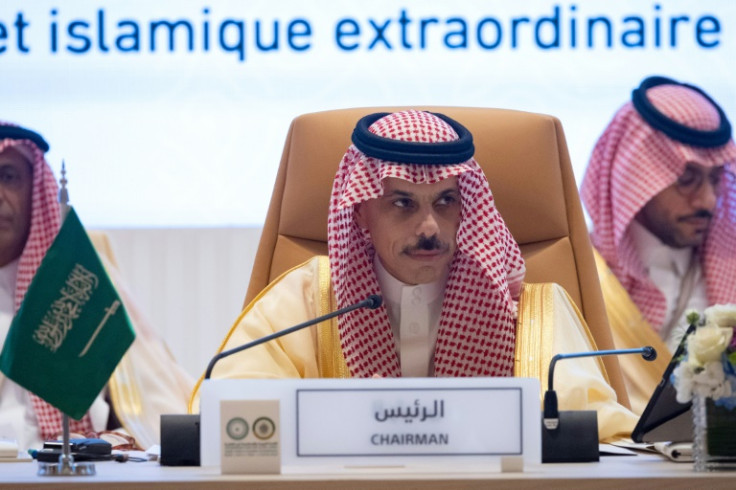Trump Looms Over Saudi-hosted Meeting On Mideast Wars

Arab and Muslim leaders gather in Saudi Arabia Monday for a summit addressing the wars in Gaza and Lebanon, a chance to send a message to US President-elect Donald Trump.
The Saudi foreign ministry announced plans for the summit in late October during a meeting, also in Riyadh, of a new "international alliance" to press for the establishment of a Palestinian state.
It comes one year after a similar gathering in Riyadh of the Cairo-based Arab League and the Jeddah-based Organisation of Islamic Cooperation during which leaders condemned Israeli forces' actions in Gaza as "barbaric".
This time around, Trump's election last week for a second term in the White House is likely to be on leaders' minds, said Anna Jacobs, senior Gulf analyst for the International Crisis Group think tank.
"This summit is very much an opportunity for regional leaders to signal to the incoming Trump administration what they want in terms of US engagement," she said.
"The message will likely be one of dialogue, de-escalation and calling out Israeli military campaigns in the region."
The war in Gaza erupted with Hamas's unprecedented attack on southern Israel on October 7 last year, which resulted in 1,206 deaths, mostly civilians, according to an AFP tally of Israeli official figures.
Israel's retaliatory campaign has killed more than 43,600 people in Gaza, most of them civilians, according to data from the Hamas-run territory's health ministry that the United Nations considers reliable.
Lebanon-based Hezbollah, which like Hamas is backed by Iran, began firing on Israel after the October 7 attack. The regular cross-border exchanges escalated in late September when Israel intensified its air strikes and sent ground troops into southern Lebanon.
Despite criticism of the impact Israel's military campaign has had on Gaza civilians, outgoing US President Joe Biden ensured that Washington remained Israel's most important military backer during more than a year of fighting.
In his first term, Trump's actions showed him as an even firmer supporter of Israel. He defied international consensus by recognising Jerusalem as Israel's capital and moving Washington's embassy there.
He also endorsed Israeli settlements in the occupied West Bank, which are illegal under international law.
Under the Abraham Accords, Trump oversaw the establishment of diplomatic relations between Israel, the United Arab Emirates and Bahrain, as well as Morocco.
Though Saudi Arabia did not join those agreements, Trump cultivated warm ties with the Gulf kingdom while in office and has deepened his business connections to the region during the Biden years.
Saudi Arabia has pressed pause on a US-brokered deal where it would recognise Israel in return for security and economic benefits, insisting there will be no diplomatic ties without a Palestinian state.
Umer Karim, an expert on Saudi politics at the University of Birmingham, said Riyadh will use Monday's summit to signal to the incoming Trump team that it remains a strong partner.
The message is that Trump "can rely on the Saudis as being representatives of the Muslim world", and that "if you want to extend American interests in the region, Saudi Arabia is your bet", he said.
The 57-member OIC and 22-member Arab League include countries which recognise Israel and those firmly opposed to its regional integration.
Last year's summit in Riyadh saw disagreement on measures like severing economic and diplomatic ties with Israel and disrupting its oil supplies.
Karim said the post-summit statement on Monday will likely "strongly condemn Israel... while also pushing for greater American leverage and diplomacy on the issue."
The November 2023 meeting featured an appearance by Iran's then-president Ebrahim Raisi, highlighting how regional diplomacy has changed since Trump was last in office.
In March 2023, Iran and Saudi Arabia announced a China-brokered rapprochement after seven years of severed ties. The Middle East heavyweights have maintained regular high-level contact as part of efforts to contain the ongoing conflicts.
Iranian state media said the chief of staff of the Saudi armed forces was to arrive in Tehran Sunday for talks, a rare high-level visit.
© Copyright AFP 2025. All rights reserved.





















